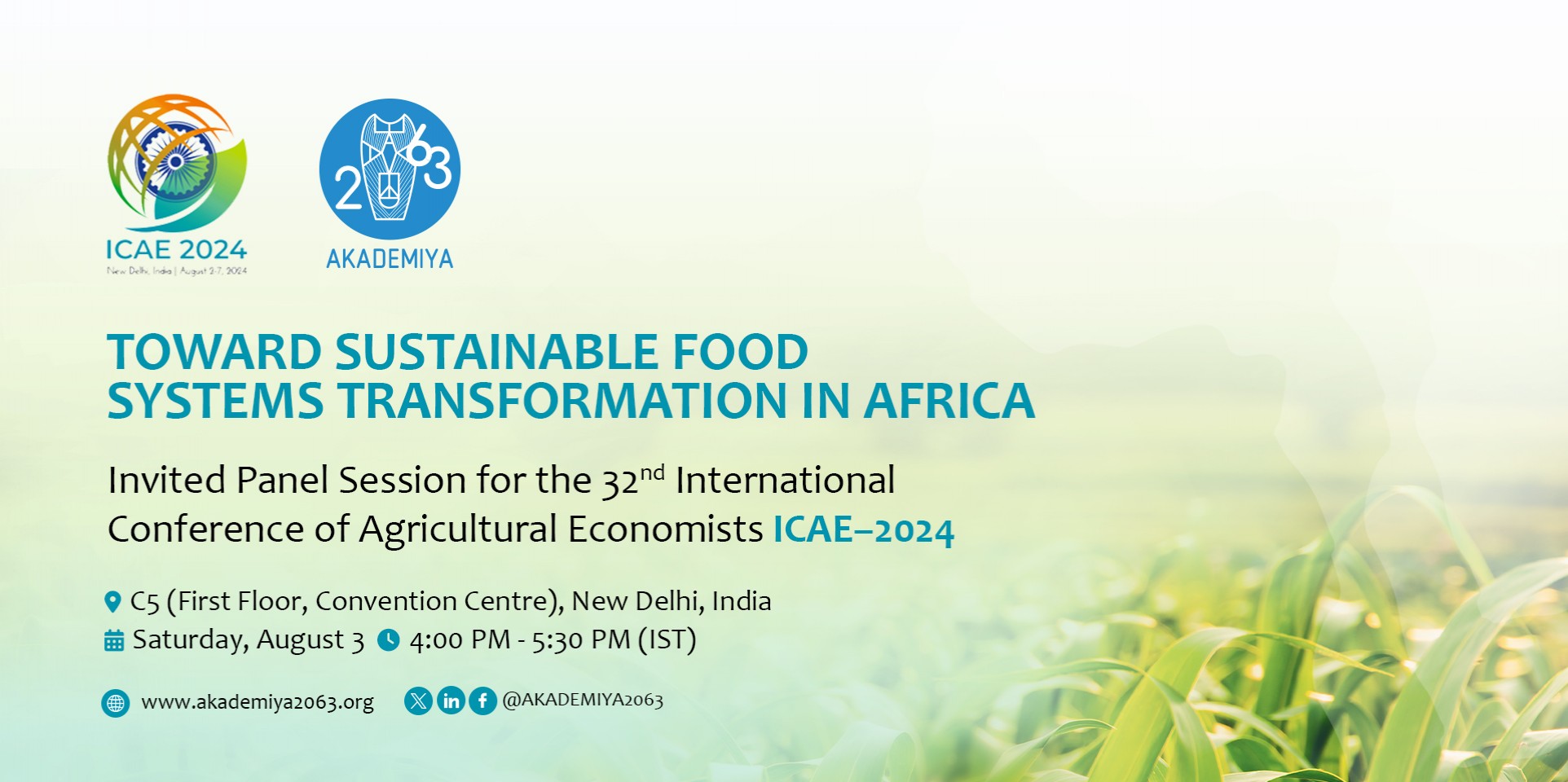Concept Note
Session Description
Africa’s food systems are under enormous pressure that threatens their sustainability. They confront exogenous shocks and challenges on many fronts: ranging from extreme weather events and more frequent and damaging effects of climate change to recurrent pests and disease outbreaks, a growing number of conflicts, and natural resource and environmental degradation. The fragility of African food systems has been laid bare by the Ukraine-Russia war and the COVID-19 pandemic that have aggravated food insecurity and poverty through disruptions in supply chains and trade, higher food prices, and losses in jobs and incomes. In fact, in 2022, the number of Africa’s hungry rose to about 282 million people, that is almost 57 million more since the start of the pandemic.1 Thus, Africa is not on track to achieve all the Malabo Declaration agri-food transformation goals by 2025 or the sustainable development goal (SDG) 2 of zero hunger by 2030.
In light of the above challenges, transforming African food systems is imperative. The transformation of food systems is necessary to ensure sustainable and resilient livelihoods as well as healthy, safe, nutritious, and affordable diets. The transformation will need a wholesale change in mindsets and behaviors of food system actors to alter food system outcomes for the better.
Objectives
This invited panel will bring together a diverse group of leading experts to share their research and perspectives on: 1. the urgent need to transform Africa’s food systems, 2. critical and emerging issues that need to be tackled to ensure sustainable food systems on the continent, and 3. innovative and practical approaches for realizing and accelerating the transformation at the regional and national levels across Africa. The discussion is timely, as it will help inform efforts led by the African Union Commission to prepare for a post-Malabo agenda that is evidence-based and takes on a more comprehensive food systems approach.

